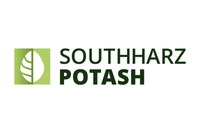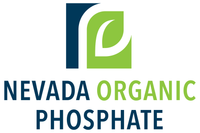Bion Enviromental Technologies Provides Policy Update
Bion Environmental Technologies Inc. (OTCQB:BNET), a provider of advanced livestock waste treatment technology, announced the following policy update:
Bion Environmental Technologies Inc. (OTCQB:BNET), a provider of advanced livestock waste treatment technology, announced the following policy update:
Pennsylvania is in default of its Chesapeake Bay nutrient reduction targets and has acknowledged it will default on its 2017 Milestones. As pointed out in the Auditor General’s April 2015 report, this could result in EPA taking actions leading to billions in additional costs to tax and rate payers.
Looming are EPA-mandated storm water requirements that Pennsylvania’s 2004 Tributary Strategy estimated would cost taxpayers $5.6 billion (and would meet only 9 percent of their Chesapeake Bay mandate). The same Tributary Strategy had originally estimated a cost of $376 million to upgrade publicly-owned treatment works (POTWs) while the actual cost of those upgrades was over $2 billion and still counting, a 500 percent ‘miss’.
Senate Bill 724 was introduced by Senator Elder Vogel, Jr., in response to the Pennsylvania Legislative Budget and Finance Committee’s (LBFC) bipartisan 2013 report that recommended a competitive bidding program to engage the private sector and unlock $1.5 billion in annual taxpayer savings. The Bill is specifically focused on substituting low-cost verified nutrient reductions from agriculture for expensive stormwater reductions. Proven manure control technologies such as Bion’s can deliver large-scale and verifiable solutions from agriculture at dramatically lower cost than stormwater treatment.
The legislation is supported by state and national agricultural and livestock producers, among others. Collectively, SB 724 supporters have made progress in highlighting to the Wolf Administration and senior legislative leaders the real costs of today’s failed clean water strategy as well as the benefits and challenges involved with restructuring that system to support private-sector solutions and investment. Both senior administration and legislative leaders have come to understand that the existing strategy has failed because it lacks certainty, transparency, and accountability, and restricts private sector competition.
Most of the goods and services acquired by federal (and state) government on behalf of the taxpayer are acquired from the private sector through competitive bidding, which provides a transparent process that levels the playing field and identifies the low-cost provider. A ‘verified credit’ standard was adopted by US EPA in 2014, enabling a framework to allow nutrient reductions from alternative sources like agriculture to be quantified and used to offset EPA-mandated reductions. The verified credit allows reductions to be compared based solely on cost, opening the door for states to use competitive bidding to identify the lowest-cost nutrient solutions. Provisions in the Federal Water Pollution Control Act, as well as Pennsylvania’s Fiscal Code, are already in place to ensure that taxpayer funds are used only for the most cost-effective solutions.
Bion Environmental Technologies Director of Communications, Craig Scott, stated:
We believe that once the budget is resolved, the Wolf Administration and the Legislature will address Pennsylvania’s Chesapeake Bay default. The current system is riddled with conflicts of interest and clearly failing as a result. The billions of dollars in taxpayer savings outlined in the LBFC report are so large that we are optimistic that Pennsylvania will be able to adopt a competitively-bid program like SB 724 that protects the interests of the taxpayer, and will also accelerate implementation to get the Commonwealth back on track with its Chesapeake Bay commitments.
That said, Pennsylvania is one state in a nationwide battle against nutrient runoff that US EPA calls the greatest water quality issue today. Policies are evolving at the national level to deal with complex multi-state watersheds like the Bay – there is a consensus that the Great Lakes and Mississippi River Basin are next. Both US EPA and USDA now publicly support engaging the private sector, as well as nutrient trading that will allow states access to lower cost solutions.
Livestock producers are ready to engage; onsite treatment of animal waste such as Bion provides can supply large-scale low-cost verifiable reductions. It is now up to the leadership in the more than thirty states in the U.S. that are affected to use all of the tools available. As we have seen in Pennsylvania, this will not be a popular decision with the entrenched interests that benefit from today’s failed strategy; however, from the perspective of the taxpayer and the environment it should be an easy one.
Connect with Bion Environmental Technologies Inc. (OTCQB:BNET) to receive an Investor Presentation

